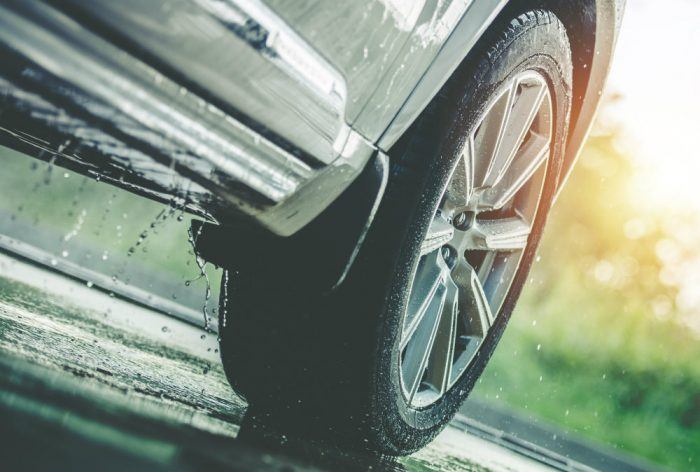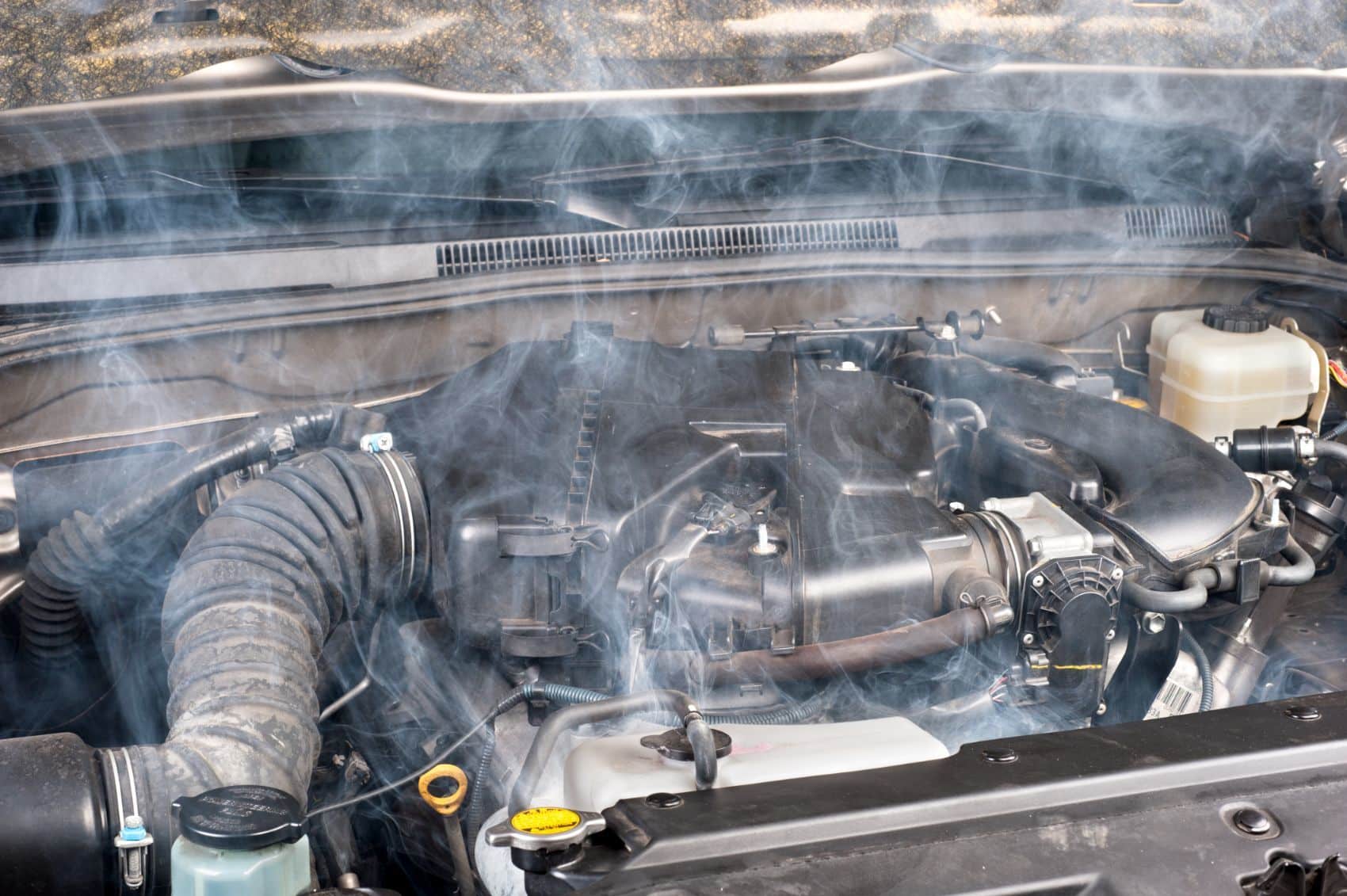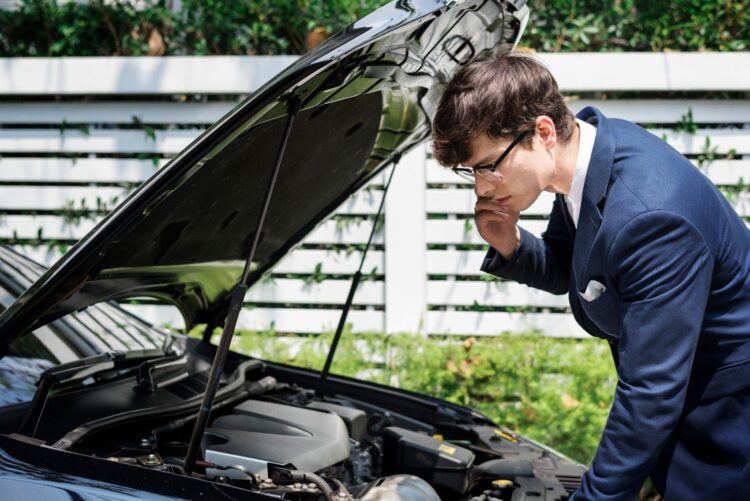- Higher temps during the summer months can have an adverse impact on your vehicle.
- These essential heatwave tips for your car will help when the temps peak this summer.
Summer can be a dangerous time for drivers and their vehicles. Not only are record-numbers of individuals and families hitting the roads for vacations, adding to already-congested freeways, heatwaves and unexpected weather can cause a trip to go south quickly if you’re unprepared. Many drivers don’t realize that extremely hot temperatures can be just as detrimental to a vehicle’s systems as the extreme cold. The good news is, with regular servicing and a little DIY upkeep, your car can withstand any seasonal changes or long trips it endures!
Be Proactive & Keep On Schedule
The most beneficial thing you can do for your car is adhere to a strict maintenance schedule and perform tasks “by the book,” or according to the manufacturer’s recommended time frames. “Knowing what the owner’s manual says will help you maintain your car properly,” said Brandon Grade, Service Advisor at Findlay Toyota in Las Vegas, Nevada. “The people who built the car will know what should be done to maintain it.”
If you have a regular mechanic or dealership for your service work and state inspections, they likely keep records on your vehicle. However, it’s also important to keep track of service dates and what tasks were performed yourself. Hold on to all receipts in the event any records are lost, or you move and need to take your car to another shop.
What To Have Checked
I like to recommend a spring/fall check-up schedule. It ensures your car is getting attention before and after the harshest times of the year: winter and summer. Breakdowns are particularly unpleasant during these times of the year. It’s also always best to have issues with heating and cooling systems addressed before temperatures take a sharp turn in either direction. “On most summer road trips, you’re driving for three to four hours at a time, so that puts unusual pressure on the engine and coolant system,” explained Vic Sias, Senior Head of Service Management, YourMechanic. “Inspecting your entire coolant system is the first step to making sure your car is ready for the road.”
A few other things to make sure you have checked:
- Tires – Bubbles, cracks, or other signs of damage are major red flags. An overheated tire (which can happen as a result of ambient temperatures and/or high speeds) is more susceptible to a blowout, particularly if the rubber compounds are already compromised. If your service professional points any of these things out, it’s time to replace your tires.
“They are what keep a car connected to the road,” said John Nielsen, AAA’s Managing Director of Automotive Engineering and Repair. “With newer cars going longer intervals between routine maintenance at automotive service facilities, drivers may not become alerted to the fact their tires are too worn until it’s too late.”
- Fluid Levels – Make sure your mechanic is checking all fluids, especially radiator coolant heading into summer. Be mindful of the oil viscosity they’re using as hotter temperatures can call for a higher oil weight to compensate for engine wear. However, this might not be necessary if you have a newer car. Do your homework and ask questions, especially if you don’t want to get unnecessarily up-charged!
“When doing your research, people will give you real-world experience rather than hypothetical, perfect scenario results,” Grade said. “That’s why I always advise everyone to look at customer reviews for anything they buy related to their car.”
Don’t Overlook Small Things
- Windshield Wipers – You should aim to replace the blades twice a year, particularly if you live in an area that experiences major changes in season and the unpredictable weather that comes with it. This is something drivers might only think of during cold months when defrosting is required. However, you don’t want to get caught off guard with sub-par wiper blades during a thunderstorm or sudden downpour. Make sure the rear wiper is changed as well, if you have one.
- Battery – Like your tires, a battery is adversely affected by heat. Your battery and charging system should be professionally-tested once a year; consider replacing a battery before it fails, about every four-to-five years. If you can’t remember how long you’ve had a battery, it’s definitely time for a check or even a replacement, particularly if you’re approaching a summer road trip!

- Related: Airbag recalls: quick facts and how to check your vehicle.
Filling In The Gaps With DIY Checks
If you’re keeping to the spring and fall maintenance schedule and driving normally, you shouldn’t run into any major issues or surprises. However, you should get into the habit of performing a quick check yourself before heading out on a long trip or when you know there’s a heatwave coming. “Whether changing the oil, replacing the wiper blades or checking the tires and brakes, finding the time to perform simple preventative maintenance ensures a safer, more dependable vehicle,” said Rich White, Executive Director of the Car Care Council.
A few spots to pay special attention to during the summer include:
- Tires – This one’s making a second appearance because I cannot reiterate the importance of good tire maintenance enough. Checking your tire pressure before a long drive is always important. During the summer, this becomes even more crucial due to the detrimental effects of heat and friction at high speeds. Always check your tire pressure in the morning when it’s cooler or after your car has been parked in a shady area for a while. Hot temperatures can cause pressure to skew higher, giving you an inaccurate reading. Stick to the recommended pressures found on the tire label, usually located in the driver’s door jamb. And don’t forget to check your spare!
“The summer heat is especially bad for tires. In the heat, asphalt temperature can top 140 degrees,” Sias said. “If tires are under-inflated and get too hot, they’ll start peeling apart and shredding on the road.”
- Radiator Check – An easy fix to keep air flowing in your vehicle is to clear the front radiator of leaves, bugs or any other debris that might have gathered there. You can address this easily with a hose.
Remember The Small Things
- Air Filters – Switching out your engine and cabin air filters is an easy task and something that will reduce stress on your engine during the hottest parts of the year. Swapping out cabin air filters coated with dirt or pollen will also make your interior much more comfortable while you blast the A/C during a heatwave!
- Under The Hood – Eyeball all fluid levels, even if they have been serviced recently, to make sure none are too low. Also, when you’re facing a heatwave, check that your battery terminals are clean, tightly clamped, and coated with a protectant. “Maintaining your car is just like maintaining your home,” Sias added. “If you don’t clean your kitchen for a year, it’ll become greasy and unsafe.”
- Related: Is an aftermarket car warranty right for you? Here are the facts.
Don’t Forget To Accessorize!
Lastly, there are countless aftermarket add-ons and tools available that can give you added protection against the elements and help preserve your car’s value. If you frequently park in direct sunlight, consider sun shades, which guard against interior fading. They can also help your car stay cool. All-weather floormats can be removed and cleaned easily with a hose, and are also a great investment. While they’re typically associated with cold weather and snow, they are equally as effective against sand, grass, and dirt (and spilled summer snacks). They also protect your original mats against high foot traffic.
Driving through a heatwave, even if you’re on vacation, can be less than enjoyable. However, with a little diligence, general upkeep, and the right accessories, your car will stay running smoothly all summer long, keeping passengers safe, cool, and happy.
Richard Reina is the Product Training Director for CARiD.com. He enjoys restoring and driving old cars with a special love for anything Italian. Richard is also passionate about music and is a huge Beatles fan.



